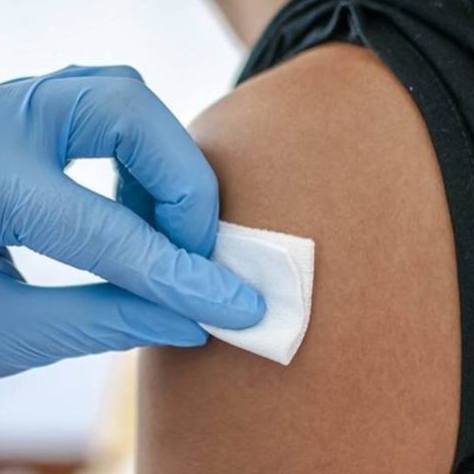-
Infectious Diseases
Mayo Clinic expert on future of HIV on World AIDS Day
World AIDS Day, observed on Dec. 1, raises awareness about HIV/AIDS and pays tribute to those affected by the disease. Globally, about 39 million people are living with HIV infection, according to the World Health Organization.
HIV is the virus that causes the condition. The virus can spread through sexual contact, sharing infected needles and, less commonly, it can pass from mother to child.
Dr. Stacey Rizza, a Mayo Clinic infectious diseases physician and HIV researcher, says that, while there has been much progress in fighting the infectious disease, HIV continues to be prevalent in "virtually every continent, every country, every religion and every socioeconomic class." That's one of the reasons she'd like to see universal screening of all people who come to a healthcare facility.
Watch: Dr. Stacey Rizza talks about future of HIV on World AIDS Day
Journalists: Broadcast-quality sound bites with Dr. Rizza are in the downloads at the end of the post. Please courtesy "Stacey Rizza, M.D. / Infectious Diseases / Mayo Clinic."
How HIV affects the body
The virus harms the body's immune system, affecting its ability to fight infections and diseases.
"The problem with HIV is it kills part of our immune cells, called the CD4 cell. And that makes people vulnerable to getting infections as well as cancers. It can hide away in the body in a latent state for many years. And that's why it's so difficult to cure HIV," she says.
"People may feel fine, but they're slowly living with the virus killing part of the immune system. And when the immune system gets low, people get significant and serious infections and cancers," Dr. Rizza adds.
HIV in society
Though people with HIV now enjoy longer and healthier lives due to improved treatments, the challenges of curbing the ongoing HIV epidemic persist.
How to protect yourself from HIV:
- Practice safe sex.
- Don't inject drugs, don't share needles or other drug injection devices.
- Get tested.
Anyone who suspects exposure through sexual contact, needle use or workplace incidents should reach out to their healthcare team or visit the emergency department.
Goal of treatment
"Our goal is to diagnose people before they get to AIDS — to diagnose them when they have early-stage HIV, get them on treatment early on before the immune system is hurt, before the virus hurts any other part of the body and before they can infect other people," Dr. Rizza says. "If you start treatment during HIV at some point in the spectrum and you're stabilized, the virus is suppressed, and the immune system goes back to a normal level."
"I wait for the day that we can cure most of our patients rather than treat most of our patients."
STACEY RIZZA, M.D.

Hope for HIV cure
There's no universal cure for HIV/AIDS, but medications can help control it and stop it from getting worse. These antiviral treatments have cut down AIDS deaths worldwide.
Research and hope for a cure continues, says Dr. Rizza.
"Every year, we see a few more people get functionally cured of HIV, which means they've gone through some kind of intervention that they no longer need to take the pills, but the virus stays completely suppressed. At Mayo Clinic, we are doing research on HIV cure. And several other places around the world are doing this research. And it's incredibly exciting," she says.
Read about the Mayo Clinic HIV Clinic
Related posts:
- HIV research provided foundation for COVID-19 research
- Forty years of HIV/AIDS: Will the epidemic end?
Related Articles







